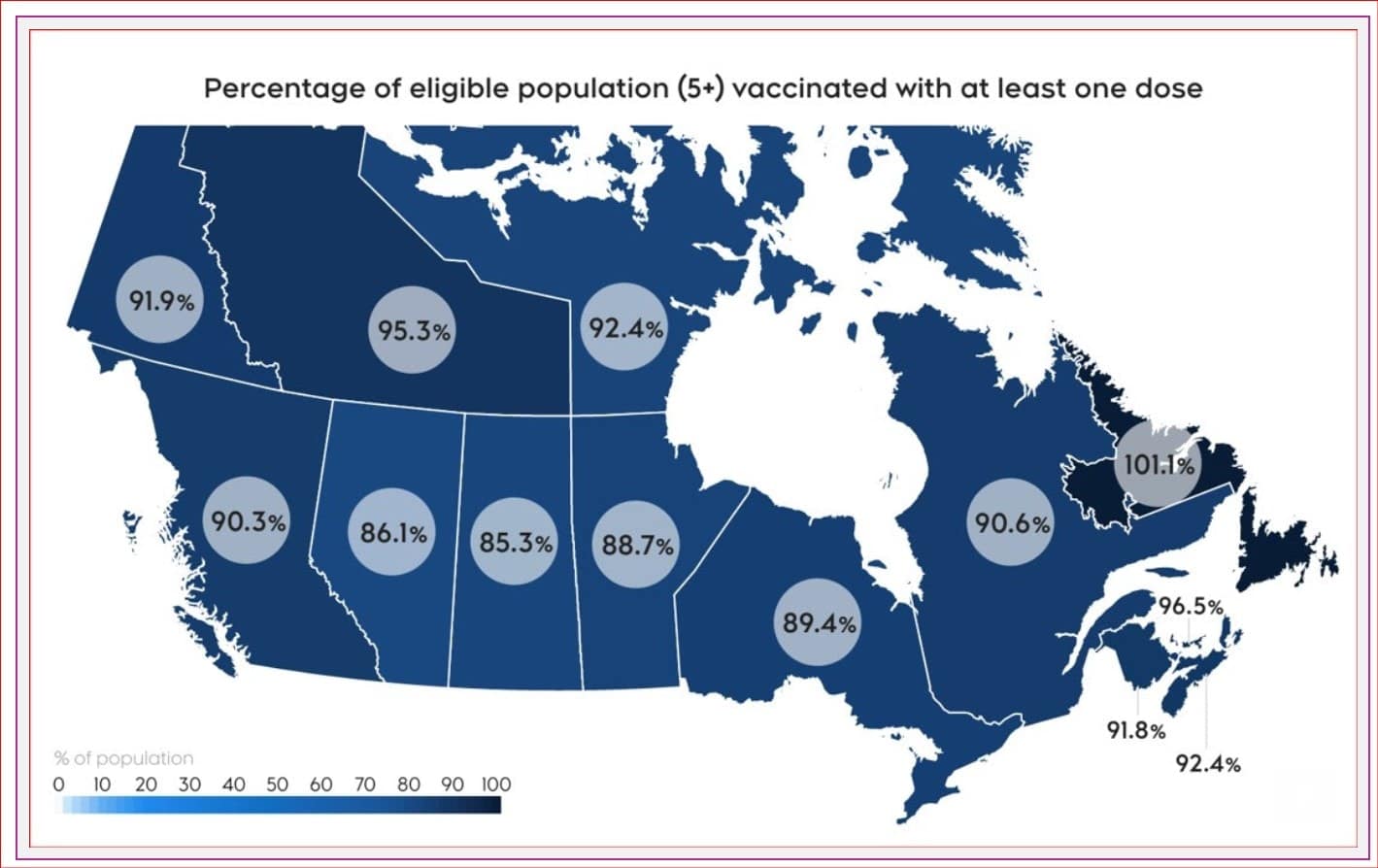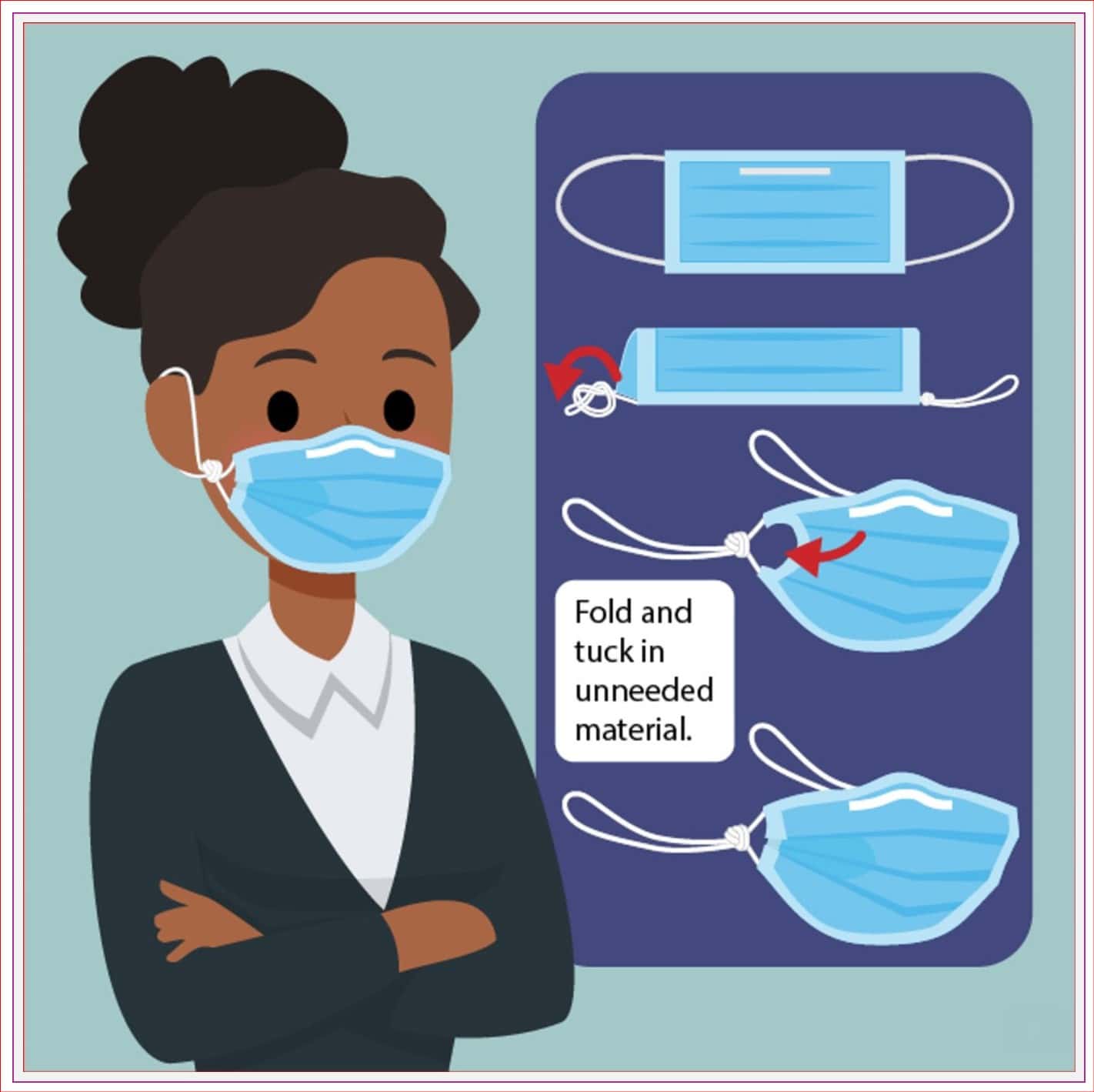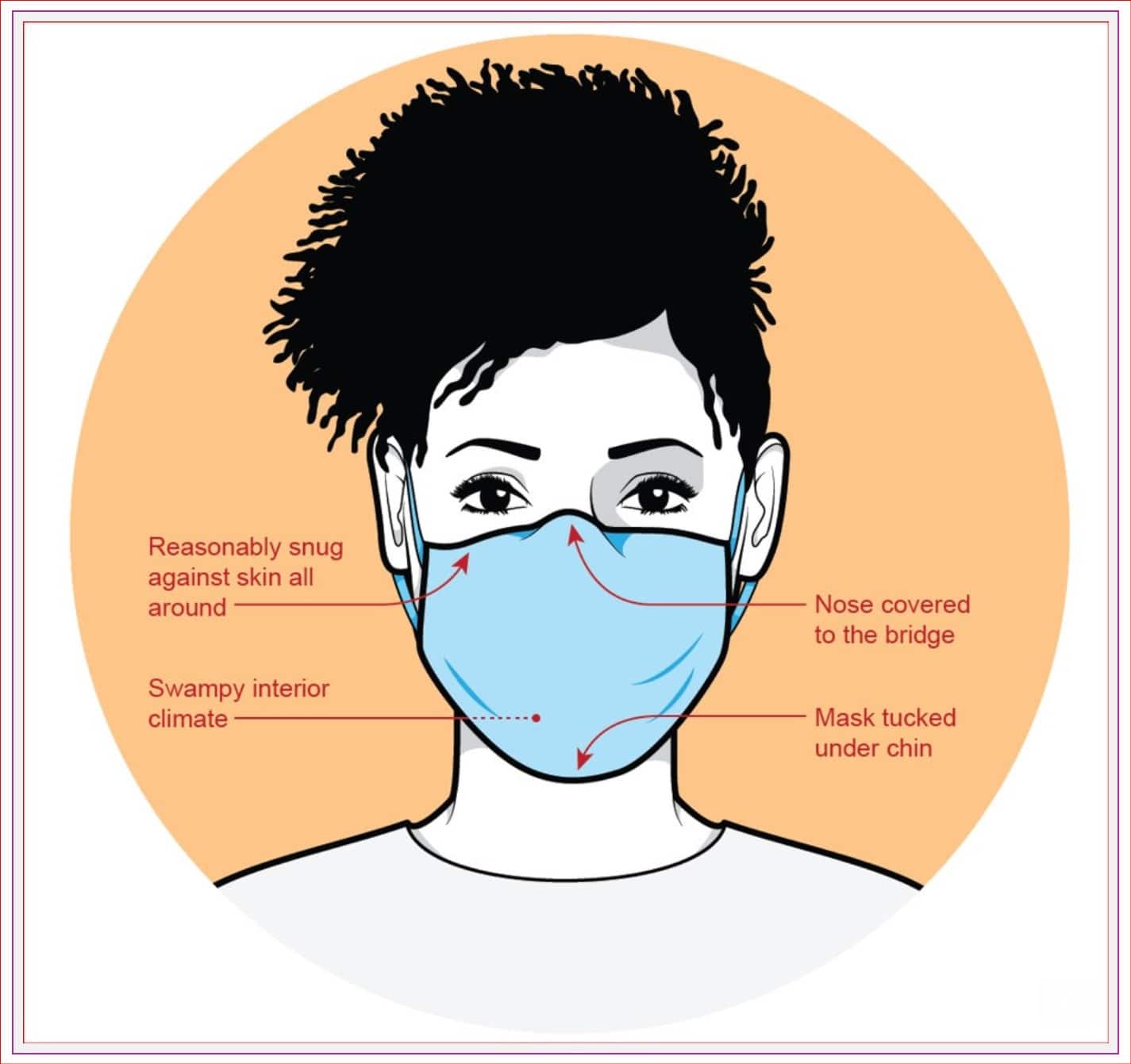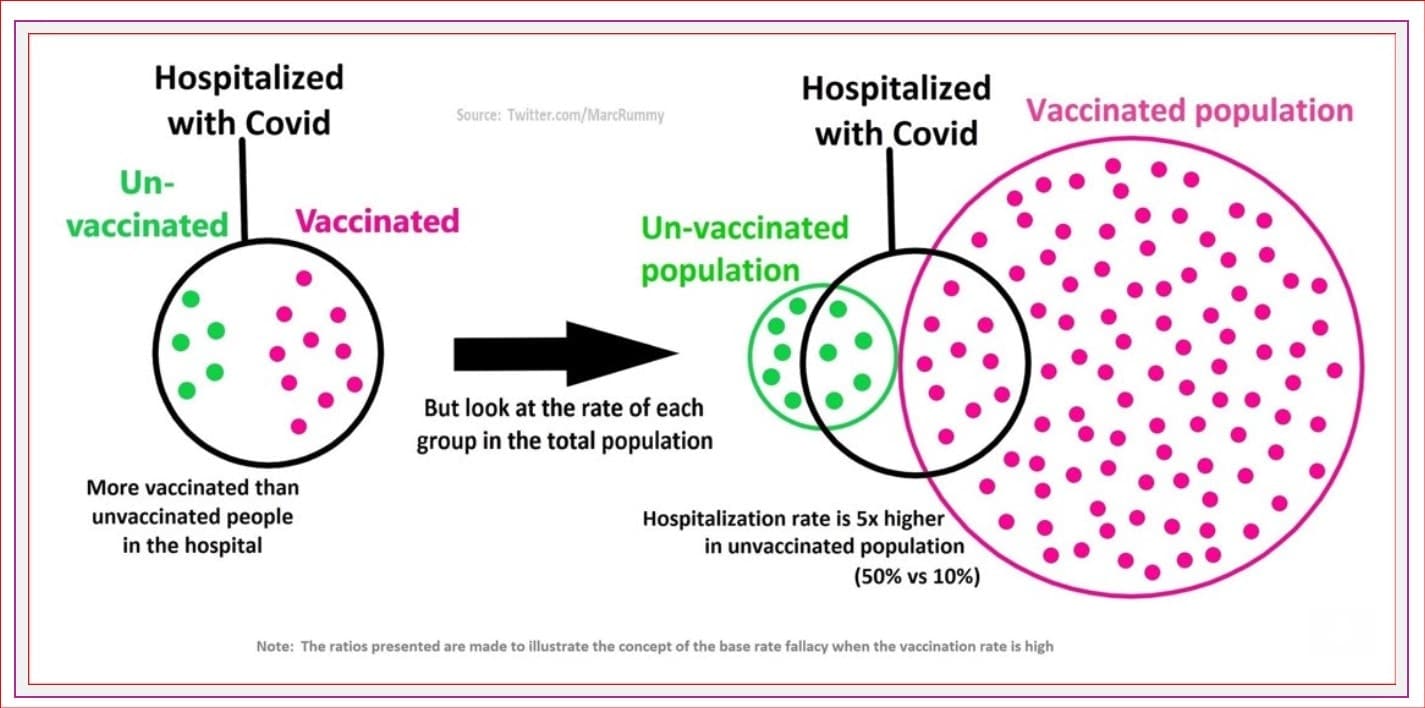Hello friends,
I hope you had a wonderful weekend!
Let’s dive into the bad news from the week, the good news, and the most common questions you had last week. As we always do, we will end on a sweet silver lining.
What is the bad news?
No matter how powerful, this virus can infect anyone. Several world leaders were infected in recent weeks. Last week, Prime Minister Trudeau had COVID. The president of Honduras, Xiomara Castro, tested positive last week, as did Turkey’s president Recep Tayyip Erdoğan. Prime Minister James Marape of Papua New Guinea also tested positive while arriving in Beijing for the opening ceremonies of the 2022 winter Games.
What’s the good news?
I am excited to start sharing more good news than bad news each week. Things are looking up.
Many provinces are seeing a drop in daily COVID cases, and while this data is far from accurate due to testing restrictions, COVID-related hospitalizations are falling. In Ontario, around 2100 people are admitted due to COVID, the lowest level since early January 2022. However, in Quebec, COVID admissions rose slightly this week.
As cases are (presumably) dropping, several provinces are lifting restrictions. Today, residents in Ontario long-term care homes will be able to take day trips outside facilities. Residents in Quebec will be able to go to concerts, movie theatres and sports venues. This is pretty exciting to many who have been restricted for two years. Many remaining public health restrictions are being lifted in Alberta and Saskatchewan.
Over 10 BILLION COVID vaccines have been given worldwide, representing 61% receiving the first dose and 53% are fully vaccinated. In Canada, 84% have received one dose, and 80% have had 2 or more doses.

Most common questions of the week
How can you make your mask fit better?
I have previously shared on Instagram some of my favourite tips to make masks fit better, including using mask locks and crisscrossing the ear loops.
Researchers at the University of Cambridge did a study of hacks such as using rubber bands to make the mask fit more tightly, knotting the ear loops, stuffing gauze in gaps at the nose bridge, and even wearing a strip of pantyhose over the mask to secure it better to the face. Have you seen anyone do this? This would undoubtedly make me do a double-take!
The researchers measured how many COVID particles were inside versus outside of the mask when using each hack. The hacks were tested on KN95 and surgical masks and multiple faces.
Two hacks performed best, including the pantyhose hack! In the pantyhose hack, a strip of pantyhose was stretched around the person’s neck and face on top of the mask to keep the mask pressed more firmly on the face.
Another hack proved helpful, where cloth tape was used to seal the edges of the mask to the face.
However, these hacks were uncomfortable.
What’s my recommendation for the best mask? Where a good quality KN95 or surgical mask, over your nose and mouth, and ensure all edges of the mask are in snug comfort to your face. Avoid bunching, slipping and gaps near the nose, the cheeks and chin.
If it is comfortable and well fit, it will serve you well.


If vaccines work, how come more people in hospitals are vaccinated than non-vaccinated?
80% of Canadians have received 2 or more doses, and many studies show that vaccines prevent severe illness and death from COVID. It can be confusing to see that many hospitalized individuals are fully vaccinated. There is a reasonable answer: there are many more vaccinated people than non-vaccinated people. When 80% of people are vaccinated, they will make up more hospitalizations.
This graphic depicts this well.

Ontario data shows that vaccination (including third doses) provides strong protection against serious illness. Increasing vaccine uptake across all groups will reduce the impact of the pandemic.
Should you get vaccinated if you’ve had COVID?
NACI continues to recommend that COVID vaccines be offered to individuals who have had COVID-19.
As I mentioned last week, NACI recommends that individuals who were infected with COVID-19 should wait eight weeks after their symptoms started or after testing positive (if asymptomatic) to receive their first or next dose. Those who completed their primary series and then contracted COVID-19 should wait three months after their symptoms started or after testing positive (if asymptomatic) to receive a booster dose. It should be at least six months since they completed their primary series.
Emerging evidence shows that a longer interval between SARS-CoV-2 infection and vaccination is associated with improved antibody responses to COVID-19 vaccines.
What’s the new vaccine in town?
New Zealand granted temporary approval to Novavax’s 2-dose COVID vaccine in adults. The vaccine was already cleared in Britain. The company filed for authorization in the United States. Trials show that the protein-based vaccine is 90% effective.
What is the plan for Directive 2?
The Ontario Chief Medical Officer of Health will be revoking Directive 2 soon. This will allow a gradual, phased and coordinated resumption of non-urgent and non-emergent surgeries and procedures.
The directive was put in place to maintain hospital capacity and resources during the recent peak in cases and hospitalizations but significantly delayed access to necessary healthcare services and exacerbated the growing backlog.
Need more info on COVID vaccines for kids?
A new advocacy campaign called ‘Parent Homework’ provides parents and caregivers with COVID vaccination facts for kids aged 5-11. It was launched by The Children’s Health Coalition, a collective of children’s health organizations across Ontario. The website provides vaccine facts, FAQs, information on booking a vaccine, and access to the SickKids’ vaccine consult service.
My silver lining of the week
Though there has been a blast of cold weather again this week, the rain and warming temperatures last week had me excited for Spring. I am a Spring and Summer girl. I love outdoor fun in the Winter, but I’ll take the heat any day. Having a chance to run in above-freezing temperatures outside last week filled my bucket. And then we skied in -20. That’s Ontario for you!
Have a fabulous week, everyone!




![[Dr. Dina News] IMPORTANT UPDATE re. VIRTUAL CARE](https://drdina.ca/wp-content/uploads/2021/01/dr-dina-kulik-kids-and-virtual-care-1a-400x250.jpg)
![[Dr. Dina News] COVID-19 Vaccine for Infants and Young Children.](https://drdina.ca/wp-content/uploads/2021/04/dr-dina-kulik-kids-and-vaccines-400x250.jpg)
![[Dr. Dina News] COVID-19 Vaccine for Infants and Young Children.](https://drdina.ca/wp-content/uploads/2022/04/DRD-1-400x250.jpg)






